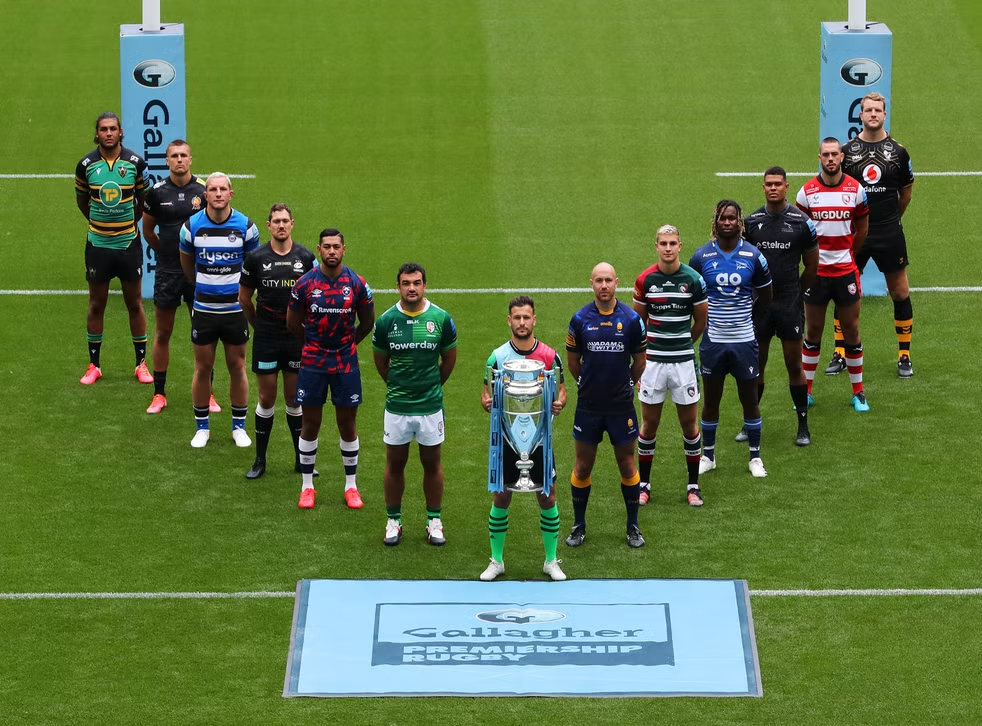The Gallagher Premiership is the highest level of rugby within England and features the very best players the Rugby system in England has to offer. These players certainly are not paid similarly to their Premier League football counterparts, so how much do they earn?
How much does a Gallagher Premiership player earn? The average Gallagher Premiership Player earns £171,187. This is the average yearly salary for an average senior player in the Gallagher Premiership as of January 2023. For comparison the average English Premier League football yearly salary is around £3.1million.

It can be difficult to say exactly how much a Gallagher Premiership player earns because the scale sways so much. Teams will feature players from their academies in the teams for the Premiership and these players can make around £20,000-£40,000. However, the figures tend to be skewed by some of the big earners.
The most a Gallagher Premiership Player currently earns is thought to be around the £1 million mark, which is the estimated salary for superstars like Handre Pollard and Charles Piatau. When Piatau signed with the Bristol Bears he was thought to be the first Premiership Player to sign a contract worth £1 million per year.
So the amount that a player earns really varies depending on the level of the player. Gallagher Premiership players can earn anywhere from £20,000 per year all the way up to earning £1 million per year. There are quite a few factors that affect how much a Premiership player earns.
How much do England Rugby Players get paid?
One of the major differences between international rugby and international football is that international rugby players usually keep hold of the money they receive for playing for their country. This is not hugely surprising when you consider the differences between how much professional footballers are paid to professional rugby players.
Since March 2021, every player who represents England receives £15,000 per fixture. This is not just the case for the players who make their way into the 23-man matchday squad. All players who are called up to the England squad will receive the payment as this was a decision made by veteran players in 2021.
The previous way it had been done was the players included in the 23-man matchday squad would receive £23,000 per appearance, but England decided to include equal pay for all players in the training squad.
The major difference between the pay for England players when they’re with their country when compared to their club is they are not paid a salary. England players are paid by appearance rather than through a salary. This is hardly surprising when you consider the amount of change within the England squad.
The England rugby team continually changes and so it would be impractical for England to pay their players using a salary as a lot of players would receive this salary when they are no longer in the team and it would be difficult to decide at the start of the year who gets the salary contracts as the team changes so much.
How much does Owen Farrell earn?
Owen Farrell is one of the superstars of international rugby, being crucial to the England team for the last decade. He has also achieved a huge amount of success with his club side Saracens and the London-based team certainly compensates him for those performances.
It is estimated that Owen Farrell earns around £750,000 per year under his current contract with Saracens. This is more than five times higher than the average Premiership salary. This is just based on the salary for the contract he is currently under with Saracens which is thought to run out in 2023.
The amounts that Farrell earns through sponsorships are much more difficult to calculate as these deals are not made public. Farrell has a major sponsorship deal with Castore, a sportswear company that also sponsors Saracens. These combined with other sponsorships make it difficult to calculate exactly how much he earns in total per year.
Prem Rugby Salary cap 2022-23
The amount that players like Owen Farrell, Marcus Smith and Ellis Genge can be paid depends on how much the teams are allowed to spend on paying their players. This is governed by a salary cap which was introduced with the aim of creating a level playing field for all clubs and preventing the richest team from winning every year.
The salary cap for the 2022-23 Gallagher Premiership season is £5,000,000 per team. This means teams are not allowed to spend more than £5,000,000 on paying their players through the season and this does have some stipulations.
One of the major stipulations brought in for the salary cap is that any team can exclude two players from the salary cap estimations. This is done so that teams can still attract superstar talent, with teams like Bristol and Saracens showing they have the ability to bring in world-class talent partly thanks to that exclusion.
There are also a few different credit systems, with the teams allowed to spend over the limit if it is for certain reasons. For example, there are injured player credits which are £400,000. This means that injured players will not count toward the salary cap up to £400,000, to allow Premiership teams to replace these players who have gotten injured.
Premiership Rugby is also looking to incentivise clubs to breed homegrown talent. Therefore there are Home Grown Player Credits which total £600,000, although these can only be used for up to £50,000 per player. They were introduced to incentivise clubs to bring through young English talent and give them first-team contracts without having any effect on the salary cap.
Premiership Rugby also understands that teams will struggle to replace players who are away on international duty. It is why they have international player credits which are capped at £80,000 per player and to be used to cover absence during international periods.
With Premiership Rugby teams struggling financially after the impact of the Covid-19 pandemic, a lot of teams are not actually reaching the salary cap. Some teams don’t have to worry about the cap because they don’t have the finances to pay their players that highly.
